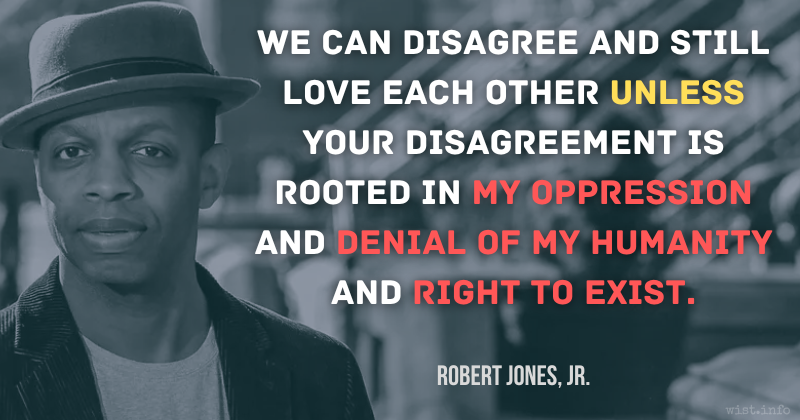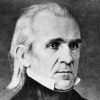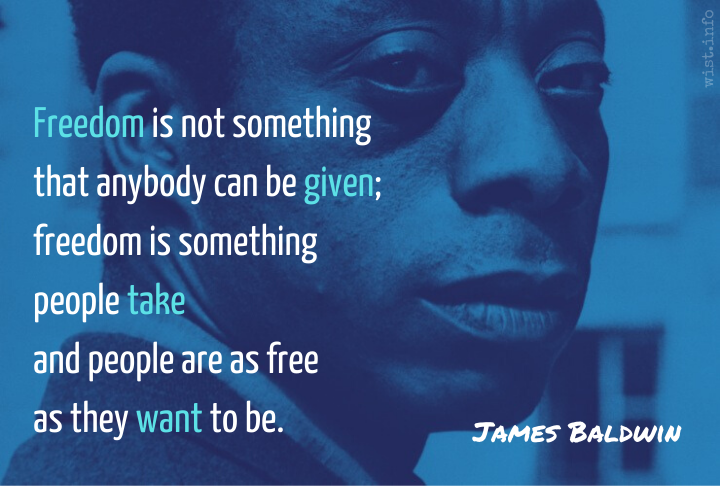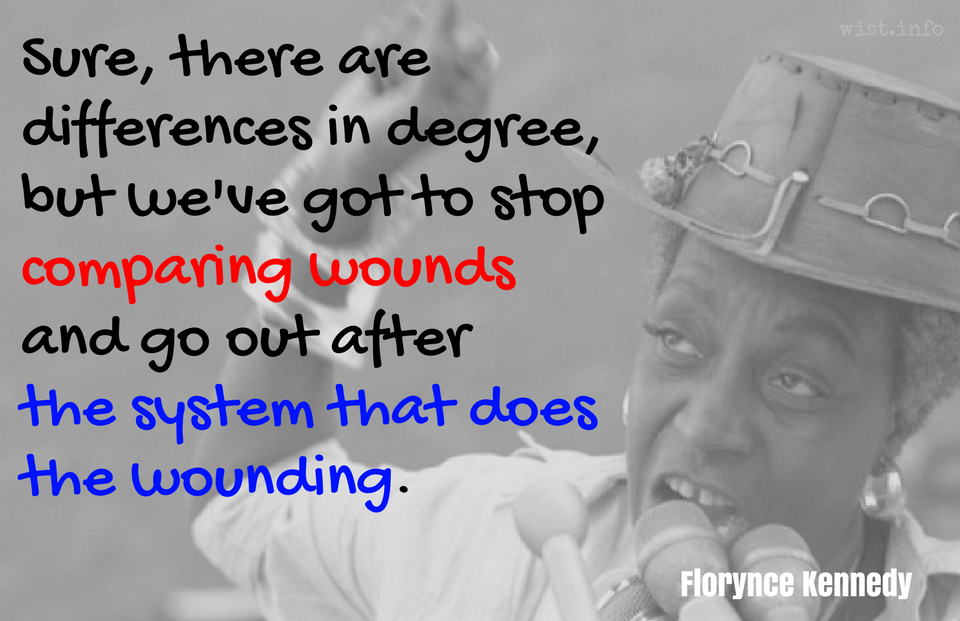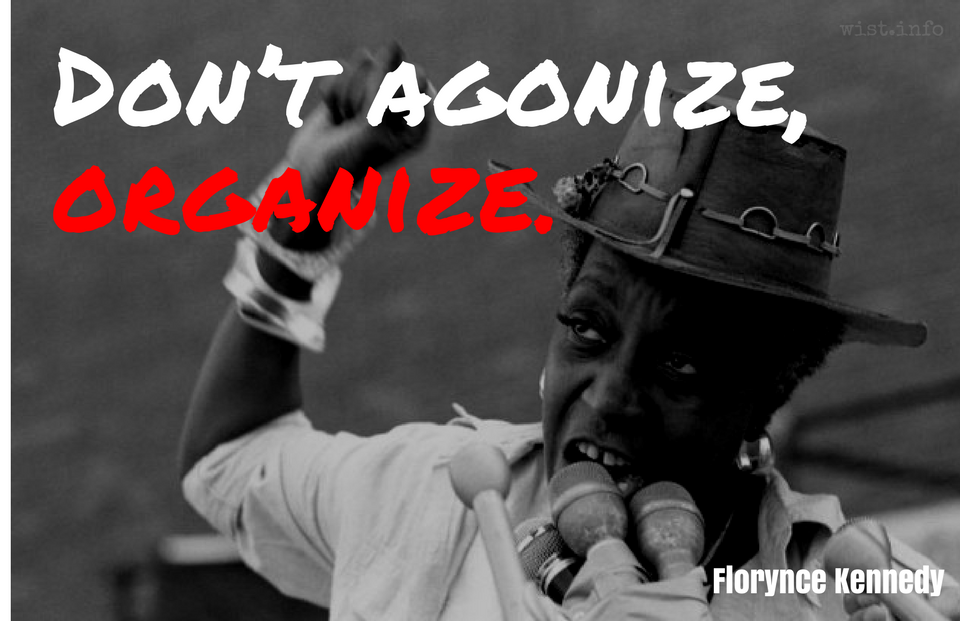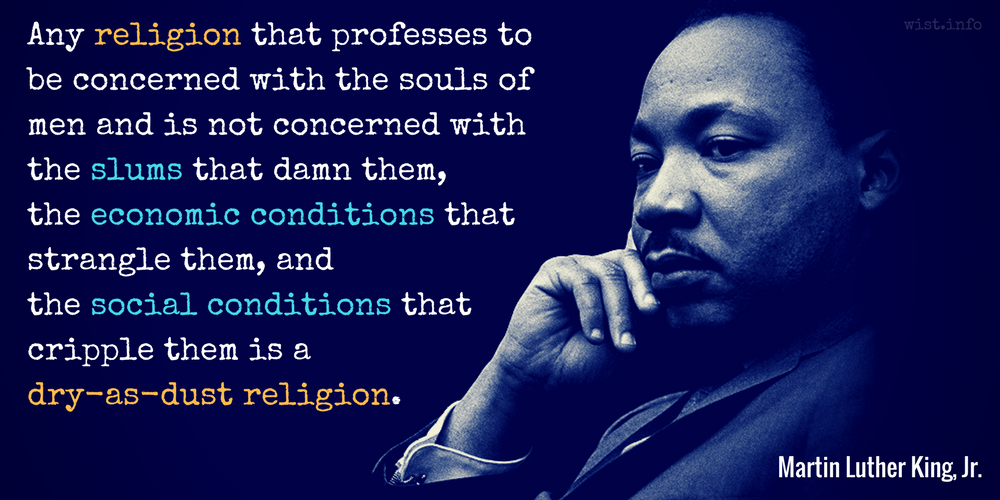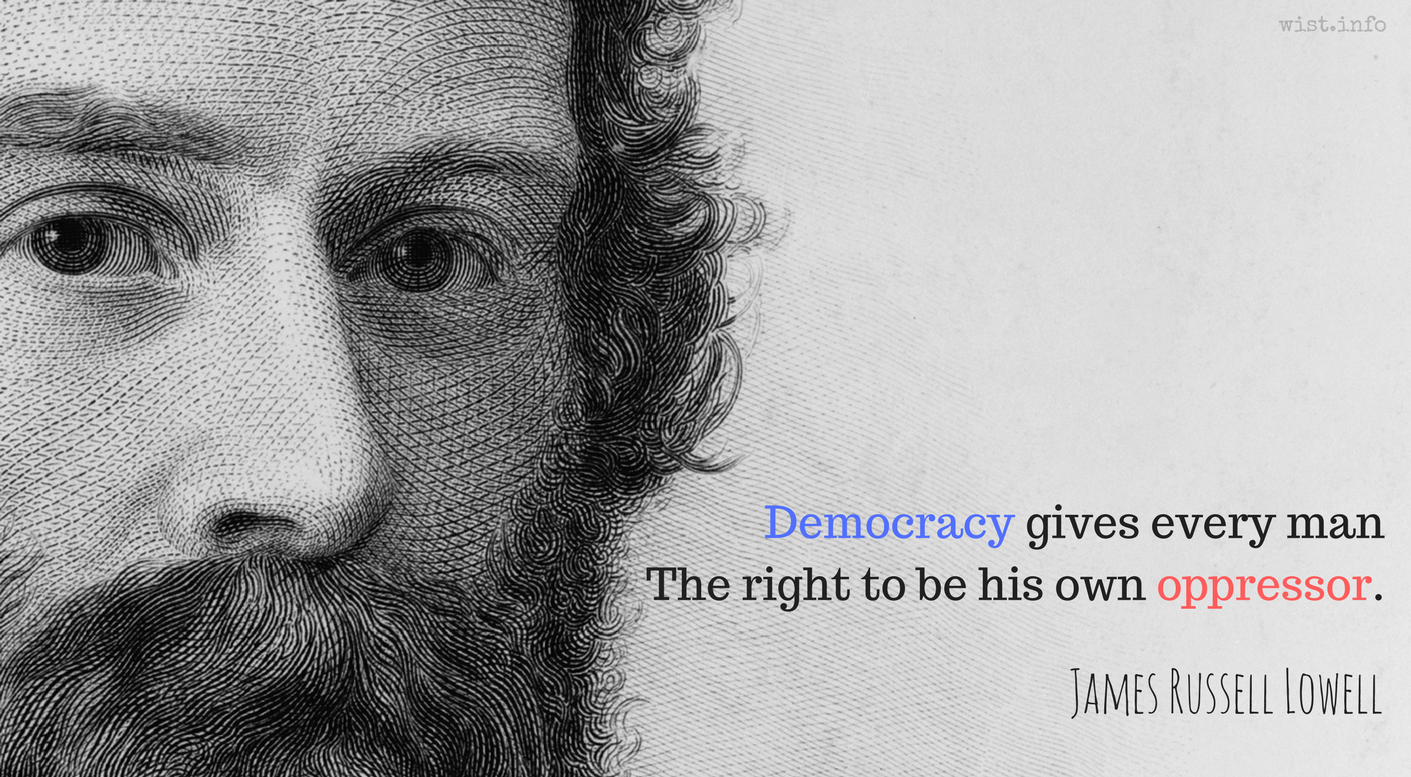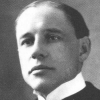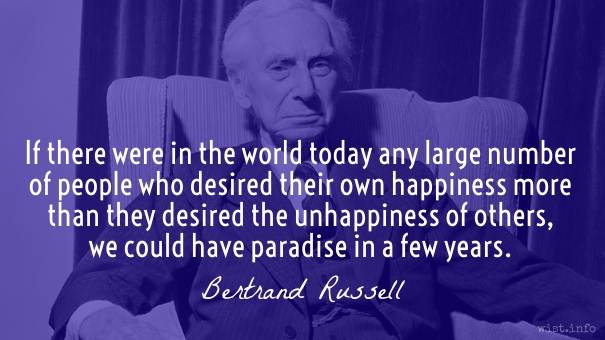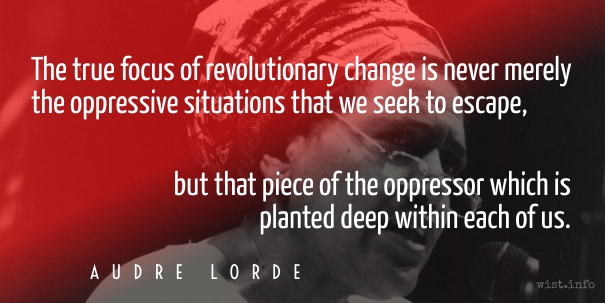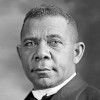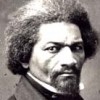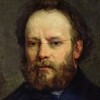Even so, one step from my grave,
I believe that cruelty, spite,
The powers of darkness will in time
Be crushed by the spirit of light.[Но и так, почти у гроба,
Верю я, придет пора —
Силу подлости и злобы
Одолеет дух добра.]Boris Pasternak (1890-1960) Russian poet, novelist, and literary translator
“Nobel Prize [Нобелевская Премия]” st. 4 (1959) [tr. Stallworthy/France (1982)]
(Source)
On his persecution for winning the 1958 Nobel Prize for Literature for Doctor Zhivago, which had been condemned by the Communist Party and the Soviet government. The poem was not published until Selected Poems (1983).
This upbeat ending is how the poem officially ends. Two more, darker, stanzas were attached to the manuscript by Pasternak, but it is unclear if they were meant to be added (and, if so, where), or if Pasternak ever wanted the poem published.
(Source (Russian)). Alternate translations:
Even now, at the edge of the tomb,
I believe in the virtuous fate, --
And the spirit of goodness will soon
overcome all the malice and hate.
[tr. Kneller]
But even as my grave awaits,
the time will come. I've believed --
The forces of meanness and hate
will be vanquished by the spirit of good.
[tr. Mager]
Yet, as I approach my passing,
I believe the day is near,
When the heart of good surpasses
rage and baseness -- even here.
[tr. Moreton]
Even in my dying hour
I believe it still stronger:
Malice will be overpowered
By the spirit of Good Will.
[tr. Astrakhan]
Quotations about:
oppression
Note not all quotations have been tagged, so Search may find additional quotes on this topic.
Cruel and savage as orthodoxies have always proved to be, the faithful seem able to convince themselves that the heretics, as they continue to crop up, get nothing worse than their due, and to rest with an easy conscience.
Learned Hand (1872-1961) American jurist
Speech (1955-01-29), “A Fanfare for Prometheus,” American Jewish Committee annual dinner, New York City
(Source)
In political institutions nearly everything that we now call an abuse, was once a remedy.
[Presque tout ce que nous appelons un abus fut un remède dans les institutions politiques.]
Joseph Joubert (1754-1824) French moralist, philosopher, essayist, poet
Pensées [Thoughts], ch. 18 “Du Siècle [On the Age],” ¶ 21 (1850 ed.) [tr. Lyttelton (1899), ch. 17, ¶ 8]
(Source)
(Source (French)). Alternate translation:
In political institutions, almost everything we call an abuse was once a remedy.
[tr. Auster (1983)], 1813 entry]
The enemy for the fanatic is pleasure, which makes it extremely important to continue to indulge in pleasure. Dance madly. That is how you get rid of terrorism.
Salman Rushdie (b. 1947) Indian novelist
“Public Event, Private Lives,” speech, University of Colorado, Boulder (2013-04-17)
(Source)
The only basis for fearing the votes of men is to fear those men themselves. To deny the right to vote is to increase those fears.
Lyndon B. Johnson (1908-1973) American politician, educator, US President (1963-69)
Speech (1960-03-10), U.S. Senate
(Source)
As Senate Majority Leader.
We can disagree and still love each other unless your disagreement is rooted in my oppression and denial of my humanity and right to exist.
Robert Jones, Jr. (b. 1971) American writer [a.k.a. "Son of Baldwin"]
Twitter (2015-08-18)
(Source)
Frequently misattributed to James Baldwin.
More discussion here: Galería de la Raza: Son of Baldwin.
Today most Americans seem to have forgotten the ancient evils which forced their ancestors to flee to this new country and to form a government stripped of old powers used to oppress them. But the Americans who supported the Revolution and the adoption of our Constitution knew firsthand the dangers of tyrannical governments. They were familiar with the long existing practice of English persecutions of people wholly because of their religious or political beliefs. They knew that many accused of such offenses had stood, helpless to defend themselves, before biased legislators and judges.
Hugo Black (1886-1971) American politician and jurist, US Supreme Court Justice (1937-71)
James Madison Lecture, NYU School of Law (1960-02-17)
(Source)
The inaugural Madison lecture. Reprinted as "The Bill of Rights," NYU Law Review, Vol. 35 (Apr 1960).
If you’re not careful, the newspapers will have you hating the people who are being oppressed, and loving the people who are doing the oppressing.
Malcolm X (1925-1965) American revolutionary, religious leader [b. Malcolm Little]
Speech, Audubon Ballroom, Harlem, New York (13 Dec 1964)
(Source)
PERICLES: ‘Tis time to fear when tyrants seem to kiss.
William Shakespeare (1564-1616) English dramatist and poet
Pericles, Act 1, sc. 2, l. 86 (1.2.86) (1607) [with George Wilkins]
(Source)
Let the rigour of a master over his slaves be applied by those who hold men under the empire of oppression; but they who rule by the principle of fear in a free state, practice a system of unparalleled madness. […] Let us therefore embrace that mode of conduct which has the most extensive influence, which contributes most, not only to the safety, but to the increase of wealth and power, and which rests, not upon fear, but upon the continuation of kind affections. — This is the method by which not only in private, but in public, we shall most easily obtain what we desire.
[Sed iis, qui vi oppresses imperio coercent, sit sane adhibenda saevitia, ut eris in famulos, si aliter teneri non possunt; qui vero in libera civitate ita se instruunt, ut metuantur, iis nihil potest esse dementius. […] Quod igitur latissime patet neque ad incolumitatem solum, sed etiam ad opes et potentiam valet plurimum, id amplectamur, ut metus absit, caritas retineatur. Ita facillime, quae volemus, et privatis in rebus et in re publica consequemur.]
Marcus Tullius Cicero (106-43 BC) Roman orator, statesman, philosopher
De Officiis [On Duties; On Moral Duty; The Offices], Book 2, ch. 7 (2.7) / sec. 24 (44 BC) [tr. McCartney (1798)]
(Source)
(Source (Latin)). Alternate translations:
It is well enough in those who by open force have reduced any nation, and accordingly rule it with a high hand, if they do sometimes use rigour and severity, like masters towards their slaves when there is no other way of holding them in subjection: but for those who are magistrates in a free city, to endeavour to make themselves feared by the people, is one of the maddest and most desperate attempts on the face of the earth. [...] Let us therefore embrace and adhere to that method which is of the most universal influence, and serves not only to secure us what we have, but moreover to enlarge our power and authority; that is, in short, let us rather endeavour to be loved than feared, which is certainly the best way to make us successful, as well in our private as our public business.
[tr. Cockman (1699)]
But the truth is, cruelty must be employed by those who keep others in subjection by force; as by a master to his slaves, if they cannot otherwise be managed. But of all madmen, they are the maddest who, in a free state so conduct themselves as to be feared. [...] We ought therefore to follow this most obvious principle, that dread should be removed and affection reconciled, which has the greatest influence not only on our security but also on our interest and power; and thus we shall most easily attain to the object of our wishes, both in private and political affairs.
[tr. Edmonds (1865)]
Those who hold under their command subjects forcibly kept down must indeed resort to severity, as masters toward their slaves when they cannot otherwise be restrained. But nothing can be more mad than the policy of those who in a free state conduct themselves in such a way as to be feared. [...] Let us then embrace the policy which has the widest scope, and is most conducive, not to safety alone, but to affluence and power, namely, that by which fear may be suppressed, love retained. Thus shall we most easily obtain what we desire both in private and in public life.
[tr. Peabody (1883)]
Let tyrants exercise cruelty, as a master does towards his slaves when he cannot control them by other means: but for a Citizen of a free State to equip himself with the weapons of intimidation is the height of madness. [...] Let us then put away fear and cleave to love; love appeals to every heart, it is the surest means of gaining safety, influence and power; in a word, it is the key to success both in private and in public life.
[tr. Gardiner (1899)]
But those who keep subjects in check by force would of course have to employ severity -- masters, for example, toward their servants, when these cannot be held in control in any other way. But those who in a free state deliberately put themselves in a position to be feared are the maddest of the mad. [...] Let us, then, embrace this policy, which appeals to every heart and is the strongest support not only of security but also of influence and power -- namely, to banish fear and cleave to love. And thus we shall most easily secure success both in private and in public life.
[tr. Miller (1913)]
Men who dominate and command other men, whom they have subjugated by force, have to apply some harshness, just as the owner uses harshness toward his slaves if he cannot control them any other way. But it is completely senseless for men in a free city act in such a way that it causes others to live in fear: no one could be more insane. [...] So let us embrace a rule that applies widely and that is extremely effective not only maintaining safety but also in acquiring wealth and power, namely, that there should be no fear, that one should hold affection dear. This is the easiest way for ust to attain what we want both in private affairs and in the government.
[tr. Edinger (1974)]
What is blasphemy? I will give you a definition; I will give you my thought upon this subject. What is real blasphemy?
To live on the unpaid labor of other men — that is blasphemy.
To enslave your fellow-man, to put chains upon his body — that is blasphemy.
To enslave the minds of men, to put manacles upon the brain, padlocks upon the lips — that is blasphemy.
To deny what you believe to be true, to admit to be true what you believe to be a lie — that is blasphemy.
To strike the weak and unprotected, in order that you may gain the applause of the ignorant and superstitious mob — that is blasphemy.
To persecute the intelligent few, at the command of the ignorant many — that is blasphemy.
To forge chains, to build dungeons, for your honest fellow-men — that is blasphemy.
To pollute the souls of children with the dogma of eternal pain — that is blasphemy.
To violate your conscience — that is blasphemy.
The jury that gives an unjust verdict, and the judge who pronounces an unjust sentence, are blasphemers.
The man who bows to public opinion against his better judgment and against his honest conviction, is a blasphemer.
Robert Green Ingersoll (1833-1899) American lawyer, agnostic, orator
Speech to the Jury, Trial of C. B. Reynolds for Blasphemy, Morristown, New Jersey (May 1887)
(Source)
It is also advantageous for a tyranny that all those who are under it should be oppressed with poverty, that they may not be able to compose a guard; and that, being employed in procuring their daily bread, they may have no leisure to conspire against their tyrants.
[καὶ τὸ πένητας ποιεῖν τοὺς ἀρχομένους τυραννικόν, ὅπως μήτε φυλακὴ τρέφηται καὶ πρὸς τῷ καθ᾽ ἡμέραν ὄντες ἄσχολοι ὦσιν ἐπιβουλεύειν.]
Aristotle (384-322 BC) Greek philosopher
Politics [Πολιτικά], Book 5, ch. 11 / 1313b.16 [tr. Ellis (1912)]
(Source)
Original Greek. Alternate translations:
- "Also he should impoverish his subjects; he thus provides against the maintenance of a guard by the citizen and the people, having to keep hard at work, are prevented from conspiring." [tr. Jowett (1885)]
- "And it is a device of tyranny to make the subjects poor, so that a guard may not be kept, and also that the people being busy with their daily affairs may not have leisure to plot against their ruler." [tr. Rackham (1932)]
- "It is also a feature of tyranny to make the ruled poor, so that they cannot sustain their own defense, and are so occupied with their daily needs that they lack the leisure to conspire." [tr. Lord (1984)]
- "It is also in the interests of a tyrant to make his subjects poor, so that he may be able to afford the cost of his bodyguard, while the people are so occupied with their daily tasks that they have no time for plotting."
There can be no permanent disfranchised peasantry in the United States. Freedom can never yield its fullness of blessings so long as the law or its administration places the smallest obstacle in the pathway of any virtuous citizen.
James A. Garfield (1831-1881) US President (1881), lawyer, lay preacher, educator
Inaugural address (4 Mar 1881)
(Source)
By the theory of our Government majorities rule, but this right is not an arbitrary or unlimited one. It is a right to be exercised in subordination to the Constitution and in conformity to it. One great object of the Constitution was to restrain majorities from oppressing minorities or encroaching upon their just rights. Minorities have a right to appeal to the Constitution as a shield against such oppression.
James K. Polk (1795-1849) American lawyer, politician, US President (1845-1849)
Inaugural Address (4 Mar 1845)
(Source)
How unhappy are women! Their own sex their most inveterate enemy. An husband tyrannizes; a lover dishonors and despises them. Watched on all sides, thwarted in all things; ever in fear and in constraint; without support or succour; with a number of lovers but not one friend. Is it then to be wondered at that they should become a compound of humor, dissimulation, and caprice?
Anne "Ninon" de l'Enclos (1620-1705) French author, courtesan, patron of the arts [Ninon de Lenclos, Ninon de Lanclos]
The Memoirs of Ninon de L’Enclos, Vol. 1, “Life and Character” (1761)
(Source)
To believe that man’s aggressiveness or territoriality is in the nature of the beast is to mistake some men for all men, contemporary society for all possible societies, and, by a remarkable transformation, to justify what is as what needs must be; social repression becomes a response to, rather than a cause of, human violence.
Leon Eisenberg (1922-2009) American psychiatrist and medical educator
“The Human Nature of Human Nature,” Science (14 Apr 1972)
(Source)
Based on an address at Faculty of Medicine Day, McGill University Sesquicentennial Celebration, Montreal, Canada (1 Oct 1971).
A man may build himself a throne of bayonets, but he cannot sit in it.
William Ralph Inge (1860-1954) English prelate [Dean Inge]
Lecture 22, Gifford Lectures, University of St Andrews, Scotland (1918)
(Source)
Reprinted in Philosophy of Plotinus, Vol. 2 (1923).
Lesbian: Any uppity woman, regardless of sexual preference. If they don’t call you a lesbian, you’re probably not accomplishing anything.
Marie Shear (1940-2017) American writer and feminist activist
“Media Watch: Celebrating Women’s Words,” New Directions for Women (May/Jun 1986)
(Source)
Ridicule: After rape, the second most powerful method of controlling women.
Marie Shear (1940-2017) American writer and feminist activist
“Media Watch: Celebrating Women’s Words,” New Directions for Women (May/Jun 1986)
(Source)
You have oppressed the poor and robbed them of their grain. And so you will not live in the fine stone houses you build or drink wine from the beautiful vineyards you plant. I know how terrible your sins are and how many crimes you have committed. You persecute good people, take bribes, and prevent the poor from getting justice in the courts. And so, keeping quiet in such evil times is the smart thing to do! Make it your aim to do what is right, not what is evil, so that you may live. Then the Lord God Almighty really will be with you, as you claim he is.
The Bible (The Old Testament) (14th - 2nd C BC) Judeo-Christian sacred scripture [Tanakh, Hebrew Bible], incl. the Apocrypha (Deuterocanonicals)
Amos 5:11-14 [GNT (1976)]
(Source)
Alternate translations:
Forasmuch therefore as your treading is upon the poor, and ye take from him burdens of wheat: ye have built houses of hewn stone, but ye shall not dwell in them; ye have planted pleasant vineyards, but ye shall not drink wine of them. For I know your manifold transgressions and your mighty sins: they afflict the just, they take a bribe, and they turn aside the poor in the gate from their right. Therefore the prudent shall keep silence in that time; for it is an evil time. Seek good, and not evil, that ye may live: and so the Lord, the God of hosts, shall be with you, as ye have spoken.
[KJV (1611)]
Well then, since you have trampled on the poor man, extorting levies on his wheat -- those houses you have built of dressed stone, you will never live in them; and those precious vineyards you have planted, you will never drink their wine. For I know that your crimes are many, and your sins enormous: persecutors of the virtuous, blackmailers, turning away the needy at the city gate. No wonder the prudent man keeps silent, the times are so evil. Seek good and not evil so that you may live, and that Yahweh, God of Sabaoth, may really be with you as you claim he is.
[JB (1966)]
Therefore because you trample on the poor and take from them levies of grain, you have built houses of hewn stone, but you shall not live in them; you have planted pleasant vineyards, but you shall not drink their wine. For I know how many are your transgressions, and how great are your sins -- you who afflict the righteous, who take a bribe, and push aside the needy in the gate. Therefore the prudent will keep silent in such a time; for it is an evil time. Seek good and not evil, that you may live; and so the Lord, the God of hosts, will be with you, just as you have said.
[NRSV (1989 ed.)]
Assuredly,
Because you impose a tax on the poor
And exact from them a levy of grain,
You have built houses of hewn stone,
But you shall not live in them;
You have planted delightful vineyards,
But shall not drink their wine.
For I have noted how many are your crimes,
And how countless your sins --
You enemies of the righteous,
You takers of bribes,
You who subvert in the gate
The cause of the needy!
Assuredly,
At such a time the prudent keep silent,
For it is an evil time.
Seek good and not evil,
That you may live,
And that the ETERNAL, the God of Hosts,
May truly be with you,
As you think.
[RJPS (2006)]
Let me point out to you that freedom is not something that anybody can be given; freedom is something people take and people are as free as they want to be. One hasn’t got to have an enormous military in order to be unfree when it’s simpler to be asleep, when it’s simpler to be apathetic, when it’s simpler, in fact, not to want to be free, to think that something else is more important.
James Baldwin (1924-1987) American novelist, playwright, activist
“Notes for a Hypothetical Novel,” speech, San Francisco College (22 Oct 1960)
(Source)
Later published in Nobody Knows My Name (1961).
Yahweh says this: Practice honesty and integrity; rescue the man who has been wronged from the hands of his oppressor; do not exploit the stranger, the orphan, the widow; do no violence; shed no innocent blood in this place.
The Bible (The Old Testament) (14th - 2nd C BC) Judeo-Christian sacred scripture [Tanakh, Hebrew Bible], incl. the Apocrypha (Deuterocanonicals)
Jeremiah 22:3 [JB (1966)]
(Source)
Alternate translations:
Thus saith the Lord; Execute ye judgment and righteousness, and deliver the spoiled out of the hand of the oppressor: and do no wrong, do no violence to the stranger, the fatherless, nor the widow, neither shed innocent blood in this place.
[KJV (1611)]
I, the Lord, command you to do what is just and right. Protect the person who is being cheated from the one who is cheating him. Do not mistreat or oppress aliens, orphans, or widows; and do not kill innocent people in this holy place.
[GNT (1976)]
Yahweh says this: Act uprightly and justly; rescue from the hands of the oppressor anyone who has been wronged, do not exploit or ill-treat the stranger, the orphan, the widow; shed no innocent blood in this place.
[NJB (1985)]
Thus says the Lord: Act with justice and righteousness, and deliver from the hand of the oppressor anyone who has been robbed. And do no wrong or violence to the alien, the orphan, and the widow, or shed innocent blood in this place.
[NRSV (1989 ed.)]
Thus said GOD: Do what is just and right; rescue from the defrauder anyone who is robbed; do not wrong the stranger, the fatherless, and the widow; commit no lawless act, and do not shed the blood of the innocent in this place.
[RJPS (2023 ed.)]
Experience declares that man is the only animal which devours its own kind; for I can apply no milder term to the governments of Europe, and to the general prey of the rich upon the poor.
Thomas Jefferson (1743-1826) American political philosopher, polymath, statesman, US President (1801-09)
Letter (1787-01-16) to Edward Carrington
(Source)
It is not a threat but a fact of history that if an oppressed people’s pent-up emotions are not nonviolently released, they will be violently released. So let the Negro march. Let him make pilgrimages to city hall. Let him go on freedom rides. And above all, make an effort to understand why he must do this. For if his frustration and despair are allowed to continue piling up, millions of Negroes will seek solace and security in black-nationalist ideologies. And this, inevitably, would lead to a frightening racial nightmare.
Martin Luther King, Jr. (1929-1968) American clergyman, civil rights leader, social activist, preacher
Playboy interview (Jan 1965)
(Source)
Sure, there are differences in degree, but we’ve got to stop comparing wounds and go out after the system that does the wounding.
History unfortunately leaves some people oppressed and some people oppressors. And there are three ways that individuals who are oppressed can deal with their oppression. One of them is to rise up against their oppressors with physical violence and corroding hatred. But oh this isn’t the way. For the danger and the weakness of this method is its futility. Violence creates many more social problems than it solves. And I’ve said, in so many instances, that as the Negro, in particular, and colored peoples all over the world struggle for freedom, if they succumb to the temptation of using violence in their struggle, unborn generations will be the recipients of a long and desolate night of bitterness, and our chief legacy to the future will be an endless reign of meaningless chaos. Violence isn’t the way.
Martin Luther King, Jr. (1929-1968) American clergyman, civil rights leader, social activist, preacher
“Loving Your Enemies,” Sermon, Dexter Avenue Baptist Church, Montgomery (17 Nov 1957)
(Source)
Don’t agonize, organize.
Florynce "Flo" Kennedy (1916-2000) American lawyer, feminist, civil rights activist
(Attributed)
(Source)
Quoted in Gloria Steinem, "The Verbal Karate of Florynce R. Kennedy, Esq.," Ms. (Mar 1973).
We must not seek to use our emerging freedom and our growing power to do the same thing to the white minority that has been done to us for so many centuries. Our aim must never be to defeat or humiliate the white man. We must not become victimized with a philosophy of black supremacy. God is not interested merely in freeing black men and brown men and yellow men, but God is interested in freeing the whole human race.
Martin Luther King, Jr. (1929-1968) American clergyman, civil rights leader, social activist, preacher
“Give Us the Ballot,” Speech, Prayer Pilgrimage for Freedom, Washington, DC (1957)
(Source)
Oppressed people are frequently very oppressive when first liberated. And why wouldn’t they be? They know best two positions. Somebody’s foot on their neck or their foot on somebody’s neck.
Any religion that professes to be concerned with the souls of men and is not concerned with the slums that damn them, the economic conditions that strangle them, and the social conditions that cripple them is a dry-as-dust religion. Such a religion is the kind the Marxists like to see — an opiate of the people.
Martin Luther King, Jr. (1929-1968) American clergyman, civil rights leader, social activist, preacher
Stride Toward Freedom, ch. 2 “Montgomery Before the Protest” (1958)
(Source)
Ignorance is king. Many would not profit by his abdication. Many enrich themselves by means of his dark monarchy. They are his Court, and in his name they defraud and govern, enrich themselves and perpetuate their power. Even literacy they fear, for the written word is another channel of communication that might cause their enemies to become united. Their weapons are keen-honed, and they use them with skill. They will press the battle upon the world when their interests are threatened, and the violence which follows will last until the structure of society as it now exists is leveled to rubble, and a new society emerges. I am sorry: But that is how I see it.
The splendor of the goal of the French Revolution is simultaneously the source of our strength and of our weakness: our strength, because it gives us an ascendancy of truth over falsehood, and of public rights over private interests; our weakness, because it rallies against us all vicious men, all those who in their hearts seek to despoil the people . … It is necessary to stifle the domestic and foreign enemies of the Republic or perish with them. Now in these circumstances, the first maxim of our politics ought to be to lead the people by means of reason and the enemies of the people by terror. If the basis of popular government in time of peace is virtue, the basis of popular government in time of revolution is both virtue and terror: virtue without which terror is murderous, terror without which virtue is powerless. Terror is nothing else than swift, severe, indomitable justice; it flows, then, from virtue.
Maximilien Robespierre (1758-174) French lawyer, politician, revolutionary leader
Speech, National Convention (7 May 1794)
(Source)
In a parallel thought, he wrote in On the Principles of Political Morality (1794):
If virtue be the spring of a popular government in times of peace, the spring of that government during a revolution is virtue combined with terror: virtue, without which terror is destructive; terror, without which virtue is impotent. Terror is only justice prompt, severe and inflexible; it is then an emanation of virtue; it is less a distinct principle than a natural consequence of the general principle of democracy, applied to the most pressing wants of the country.
Being a lover of freedom, when the revolution came in Germany, I looked to the universities to defend it, knowing that they had always boasted of their devotion to the cause of truth; but, no, the universities immediately were silenced. Then I looked to the great editors of the newspapers whose flaming editorials in days gone by had proclaimed their love of freedom; but they, like the universities, were silenced in a few short weeks. Then I looked to individual writers who, as literary guides of Germany, had written much and often concerning the place of freedom in modern life; but they, too, were mute.
Only the church stood squarely across the path of Hitler’s campaign for suppressing truth. I never had any special interest in the church before, but now I feel a great affection and admiration because the church alone has had the courage and persistence to stand for intellectual truth and moral freedom. I am forced thus to confess that what I once despised I now praise unreservedly.
Albert Einstein (1879-1955) German-American physicist
(Disputed)
Regarding the rise of the Nazi party in Germany. Originally attributed in S. Parkes Cadman, "The Conflict Between Church And State In The Third Reich," La Crosse Tribune and Leader-Press (28 Oct 1934), noted as a "free translation" made by a colleague of the writer. Made famous in being quoted in Time (23 Dec 1940). Einstein himself said that he'd said something like this to a journalist, noting that the only German intellectuals supporting individual rights and intellectual freedom in the early Nazi regime were a few churchmen. He later suggested that his words on the matter had been significantly exaggerated, and issued much more critical statements about how the Catholic Church, in particular, had been silent or collaborated with the Nazi regime. More discussion here and here.
Politics, as a practice, whatever its professions, had always been the systematic organization of hatreds.
Henry Adams (1838-1918) American journalist, historian, academic, novelist
The Education of Henry Adams, ch. 1 (1907)
Restated by George Will in saying that the value of political parties was that "They organize our animosities." Interview, The Colbert Report (3 Jun 2008) at 6:43.
CATO: Content thyself to be obscurely good.
When vice prevails, and impious men bear sway,
The post of honour is a private station.Joseph Addison (1672-1719) English essayist, poet, statesman
Cato, Act 4, sc. 4, l. 139ff (1713)
(Source)
The old century is very nearly out, and leaves the world in a pretty pass, and the British Empire is playing the devil in it as never an empire before on so large a scale. We may live to see its fall. All the nations of Europe are making the same hell upon earth in China, massacring and pillaging and raping in the captured cities as outrageously as in the Middle Ages. The Emperor of Germany gives the word for slaughter and the Pope looks on and approves. In South Africa our troops are burning farms under Kitchener’s command, and the Queen and the two houses of Parliament, and the bench of bishops thank God publicly and vote money for the work. The Americans are spending fifty millions a year on slaughtering the Filipinos; the King of the Belgians has invested his whole fortune on the Congo, where he is brutalizing the Negroes to fill his pockets. The French and Italians for the moment are playing a less prominent part in the slaughter, but their inactivity grieves them. The whole white race is reveling openly in violence, as though it had never pretended to be Christian. God’s equal curse be on them all! So ends the famous nineteenth century into which we were so proud to have been born.
Wilfrid Scawen Blunt (1840-1922) English poet, critic, horse breeder
My Diaries, 1888-1914, 22 Dec 1900 (1921)
(Source)
The central belief of every moron is that he is the victim of a mysterious conspiracy against his common rights and true desserts. He ascribes all his failure to get on in the world, all of his congenital incapacity and damnfoolishness, to the machinations of werewolves assembled in Wall Street, or some other such den of infamy. If these villains could be put down, he holds, he would at once become rich, powerful and eminent. Nine politicians out of every ten, of whatever party, live and have their being by promising to perform
this putting down. In brief, they are knaves who maintain themselves by preying on the idiotic vanities and pathetic hopes of half-wits.
The oppression of women knows no ethnic nor racial boundaries, true, but that does not mean it is identical within those boundaries.
Audre Lorde (1934-1992) American writer, feminist, civil rights activist
“An Open Letter to Mary Daly” (6 May 1979)
(Source)
If there were in the world today any large number of people who desired their own happiness more than they desired the unhappiness of others, we could have paradise in a few years.
Bertrand Russell (1872-1970) English mathematician and philosopher
Interview by Seth King, New York Times (1961-05-18)
Interview on his 89th Birthday. The article does not presently show up in the NYT archives, but the quotation is mentioned in Newsweek, "Newsmakers" (1961-05-29), and in Think Magazine, "Thoughts" (1961-12).
For the master’s tools will never dismantle the master’s house. They may allow us to temporarily beat him at his own game, but they will never enable us to bring about genuine change.
Audre Lorde (1934-1992) American writer, feminist, civil rights activist
“The Master’s Tools Will Never Dismantle the Master’s House” (1979)
(Source)
The history of the Jews also shows that oppression and persecution are far more efficacious in binding a nation together than community of interest and national prosperity. Increase of wealth divides rather than unites a people; but suffering shared in common binds it together with hoops of steel.
The true focus of revolutionary change is never merely the oppressive situations that we seek to escape, but that piece of the oppressor which is planted deep within each of us.
I would permit no man, no matter what his colour might be, to narrow and degrade my soul by making me hate him.
Booker T. Washington (1856-1915) American educator, writer
Up from Slavery, ch. 11 (1901)
(Source)
This has been paraphrased in various ways, and is the source of Martin Luther King, Jr's quote he attributed to Washington: "Let no man pull you so low as to make you hate him" (e.g., Stride Toward Freedom, ch. 6 (1958)). King used this or variants of this paraphrase frequently in his speeches, though it was only in his early activism that he referenced Washington by name.
When evil-doing comes like falling rain, nobody calls out “stop!”
When crimes begin to pile up they become invisible.
When sufferings become unendurable the cries are no longer heard.
The cries, too, fall like rain in summer.
POLLY PEACHUM: The law is simply and solely made for the exploitation of those who do not understand it or of those who, for naked need, cannot obey it.
Find out just what any people will quietly submit to, and you have found out the exact amount of injustice and wrong which will be imposed upon them; and these will continue till they are resisted with either words or blows, or with both. The limits of tyrants are prescribed by the endurance of those whom they oppress.
The doctrine which, from the very first origin of religious dissensions, has been held by bigots of all sects, when condensed into a few words and stripped of rhetorical disguise, is simply this: — I am in the right, and you are in the wrong. When you are the stronger, you ought to tolerate me, for it is your duty to tolerate truth; but when I am the stronger, I shall persecute you, for it is my duty to persecute error.
Thomas Babington Macaulay (1800-1859) English writer and politician
“Sir James Mackintosh’s History of the Revolution,” Edinburgh Review (Jul 1835)
(Source)
Review of James Mackintosh, History of the Revolution in England, in 1638 (1834).
I think that if the beast who sleeps in man could be held down by threats — any kind of threat, whether of jail or of retribution after death — then the highest emblem of humanity would be the lion tamer in the circus with his whip, not the prophet who sacrificed himself. But don’t you see, this is just the point — what has for centuries raised man above the beast is not the cudgel but an inward music: the irresistible power of unarmed truth, the powerful attraction of its example.
Boris Pasternak (1890-1960) Russian poet, novelist, and literary translator
Doctor Zhivago [До́ктор Жива́го], Part 1, ch. 2 “A Girl from a Different World” [Nikolai] (1955) [tr. Hayward & Harari (1958), US ed.]
(Source)
Alternate translations:
I think that if the beast who sleeps in man could be held down by threats -- any kind of threat, whether of jail or of retribution after death -- then the highest emblem of humanity would be the lion tamer in the circus with his whip, not the self-sacrificing preacher. But don’t you see, this is just the point -- what has for centuries raised man above the beast is not the cudgel but an inward music: the irresistible power of unarmed truth, the attraction of its example.
[tr. Hayward & Harari (1958), UK ed.]
I think that if the beast who sleeps in man could be held down by threats -- any kind of threat, whether of jail or of retribution after death -- then the highest emblem of humanity would be the lion tamer in the circus with his whip, not the prophet who sacrificed himself. But this is just the point -- what has for centuries raised man above the beast is not the cudgel, but an inward music -- the irresistible power of unarmed truth.
[tr. Hayward & Harrai (1958); edited version quoted by Ronald Reagan, Moscow State University (1988-05-31)]
I think that if the beast dormant in man could be stopped by the threat of, whatever, the lockup or requital beyond the grave, the highest emblem of mankind would be a lion tamer with his whip, and not the preacher who sacrifices himself. But the point is precisely this, that for centuries man has been raised above the animals and borne aloft not by the rod, but by music: the irresistibility of the unarmed truth, the attraction of its example.
[tr. Pevear & Volokhonsky (2010), "A Girl from a Different Circle"]
What an effort, my dear Sir, of bigotry in Politics & Religion have we gone through. The barbarians really flattered themselves they should even be able to bring back the times of Vandalism, when ignorance put every thing into the hands of power & priestcraft. All advances in science were proscribed as innovations. They pretended to praise & encourage education, but it was to be vain the education of our ancestors. We were to look backwards not forwards for improvement, the President himself declaring in one of his answers to addresses that we were never to expect to go beyond them in real science. This was the real ground of all the attacks on you: those who live by mystery & charlatanerie, fearing you would render them useless by simplifying the Christian philosophy, the most sublime & benevolent, but most perverted system that ever shone on man, endeavored to crush your well earnt, & well deserved fame.
Thomas Jefferson (1743-1826) American political philosopher, polymath, statesman, US President (1801-09)
Letter to Joseph Priestley (21 Mar 1801)
(Source)
The central fact of American civilization — one so hard for others to understand — is that freedom and justice and the dignity of man are not just words to us. We believe in them. Under all the growth and the tumult and abundance, we believe. And so, as long as some among us are oppressed — and we are part of that oppression — it must blunt our faith and sap the strength of our high purpose.
Lyndon B. Johnson (1908-1973) American politician, educator, US President (1963-69)
Speech (1965-08-06), Signing of the Voting Rights Act, Washington, D.C.
(Source)






